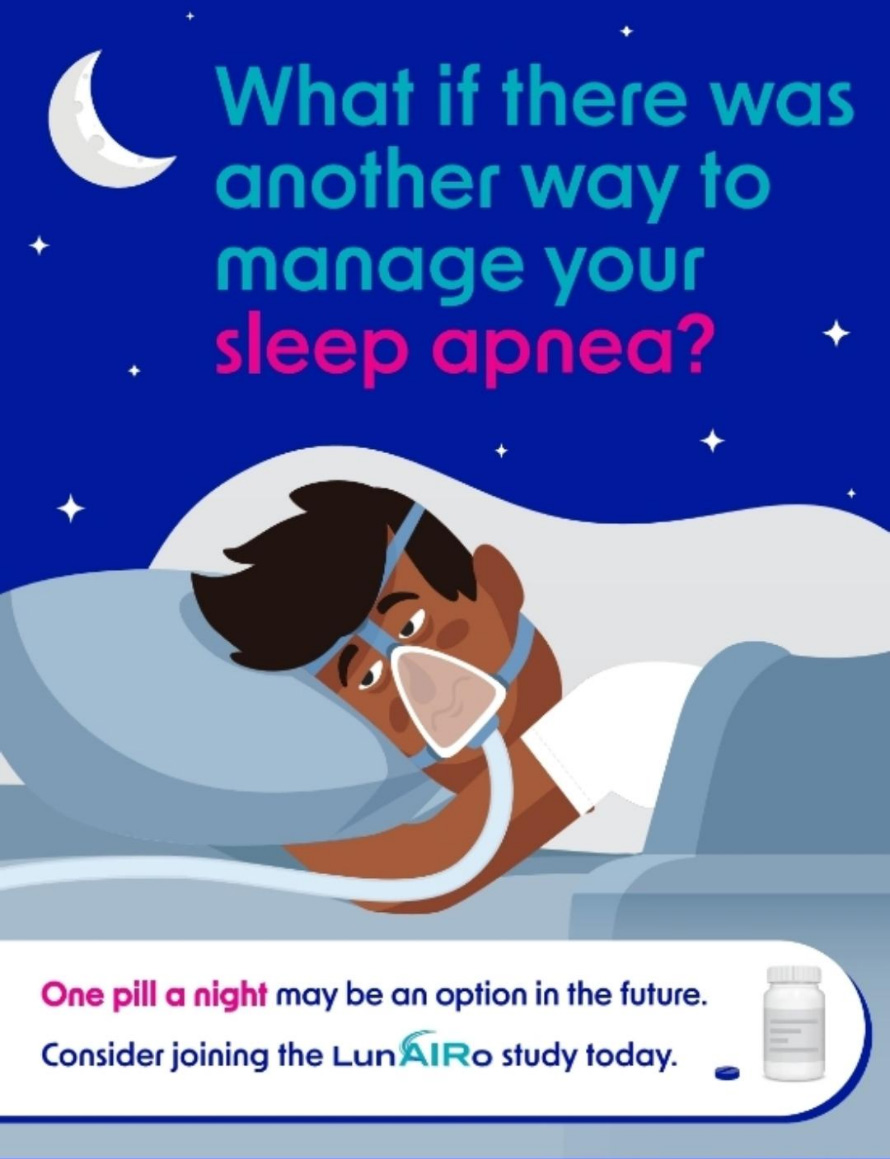(Archived) Clinical Study for Obstructive Sleep Apnea
*Archived*
Study No Longer Active
Obstructive Sleep Apnea Study
Designed for people with sleep apnea who do not use CPAP.
About the Obstructive Sleep Apnea Study
The sleep study is designed for people with sleep apnea who do not use CPAP. The purpose of this clinical study is to see if an investigational medication is a safe and effective treatment option for people with obstructive sleep apnea.
You may be able to take part in the Study if you:
- You have been diagnosed with Obstructive Sleep Apnea
- You are 18 or older
- You do not use a CPAP machine
- Receive compensation up to $1,910 for inconvenience and travel
If you are interested in participating, the study doctor and staff will review additional eligibility criteria with you and answer any questions you may have.

Complete The Questionnaire Below To Submit Your Information For Future Studies

Better Sleep
Study Overview
Unable to use CPAP? Join a clinical study for a potential new sleep apnea treatment!
(BPT) – If you are diagnosed with obstructive sleep apnea (OSA), it’s likely that your health care provider will recommend treatment with a medical device called continuous positive airway pressure, or CPAP. While CPAP is the most common treatment that works well for some people, more than half of the patients find CPAP uncomfortable and are unable to use it. This leaves many people at risk from the consequences of untreated or undertreated OSA.
How OSA affects your health
People with OSA have pauses in their breathing during sleep, called apneas, when the muscles in their throat relax with sleep and block normal breathing. As a result, the quality of sleep may worsen, and lead to feeling overly tired during the day.
If you have OSA, you may experience fatigue and sleepiness, making it difficult to function at work and at home. This could have a negative impact on your life.
Over the long term, OSA can also lead to serious chronic health consequences. OSA can lower oxygen levels in your blood and make conditions such as diabetes, high blood pressure or hypertension worse. Long term, untreated OSA may increase a person’s risk of strokes and heart attacks.


